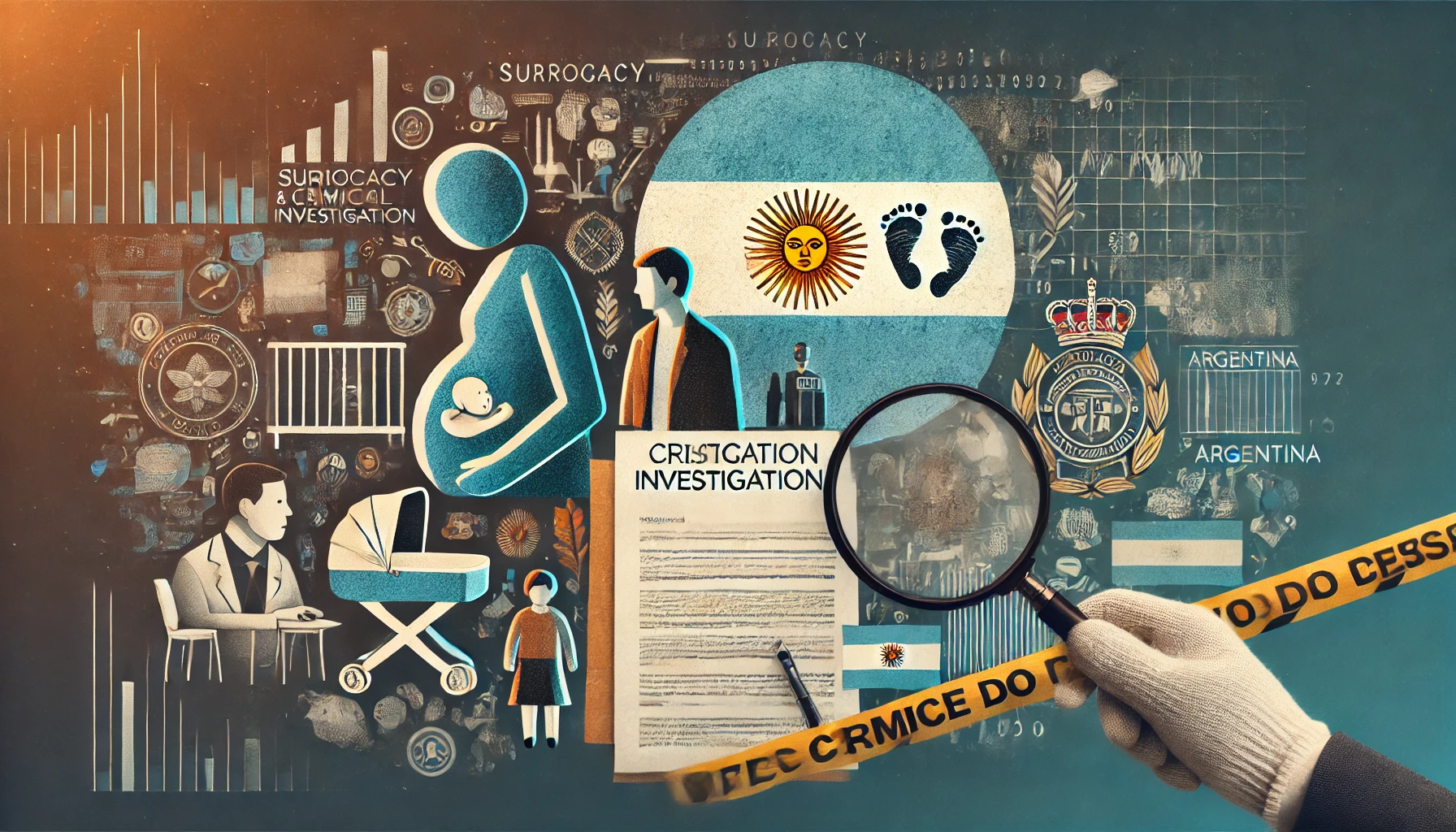Criminal Investigations in Argentina

According to local news reports and agency contacts a criminal investigation has been opened with a specific agency and clinic who have been practising unethical practices in surrogate recruitment and treatment.
While the current situation is fluid, most agencies are continuing as normal while they continue to operate to high standards.
A recent post by SAMeR aims to clarify the situation with the following translation:
In light of all the confusing, inaccurate and malicious information currently being disseminated regarding surrogacy treatments, SAMeR –
Argentine Society of Reproductive Medicine – informs the following:
Surrogacy (GS) is an assisted reproduction technique that allows many people to access motherhood and fatherhood for whom otherwise
otherwise it would not be possible. This practice has its origins in the late 1980s in the USA.
U.S. and has been on the rise ever since. Essentially, it involves a woman with her full consent deciding to help another person or couple carry a pregnancy to term.
There are many people who cannot bear their own children and this is a requirement for access to this treatment. Patients who have an indication for GS are women without a uterus, with severe uterine malformations, with contraindications to pregnancy due to some other disease, atrophic endometrium, severe endometriosis, recurrent implantation failures or repeated miscarriages.
Single men or equal-sex male couples are also indicated for GS.
Pregnant women must be evaluated both medically and psychologically to ensure their physical and emotional well-being. It is essential that they have already been mothers and that they have a low obstetric risk, considering their history and the number of previous births or cesarean sections. From our professional ethics, we consider that the pregnant woman must be a full, supportive and empathetic woman who, from her gestational possibility, is willing to help those who need it.
Due to the regrettable absence of national regulation, SAMeR proposes, through its 2024 Ethics Guide, principles and guidelines that establish guidelines that allow for the protection and safeguarding of the rights and dignity of all persons involved in the process, including future parents, the surrogate mother and the newborn child.
Participants are required to express their will by signing prior, free and informed consents. In the event of regret, at any time prior to the time of embryo transfer, these are revoked and the treatment cancelled without any harm to the surrogate mother.
These agreements between surrogates and intended parents are ethically acceptable as long as adequate and detailed medical, psychological and legal advice is available, safeguarding the autonomy of the participants.
Surrogacy can only be understood through empathy and sensitivity towards those who have gone through the long and painful path of infertility.
The professionals who work at GS have witnessed the formation not only of families but also of bonds between parents, surrogates and their own families. Many of these bonds have endured over time and have become a support network for both parties.
At SAMeR we consider surrogacy as one of the treatments available in the field of Assisted Reproduction, with the aim of helping people and couples to form a family with children. Always within the framework of ethics and the regulation of the professional practice of doctors, psychologists and lawyers, maintaining our request for a prompt law that frames this practice for the well-being of all those involved.
For more information on this issue you can contact us where we can provide useful independent contacts to discuss this with locally.

